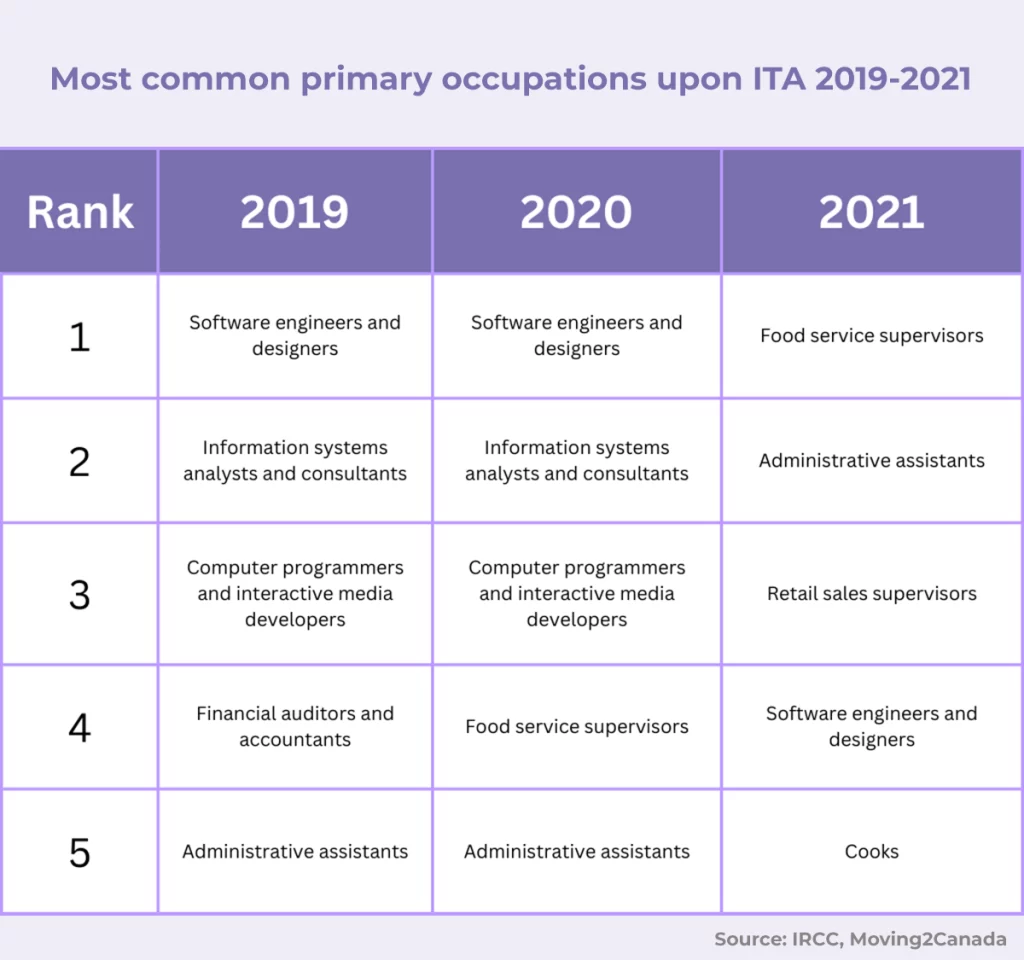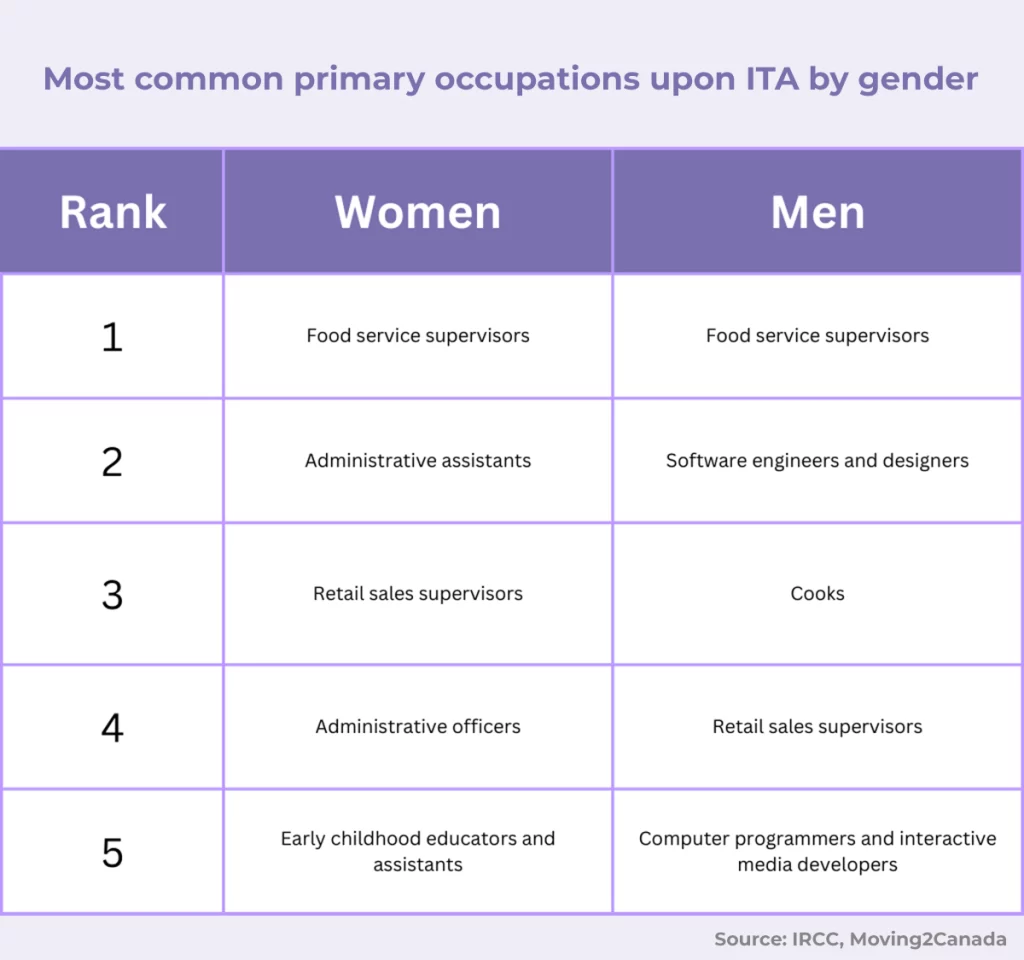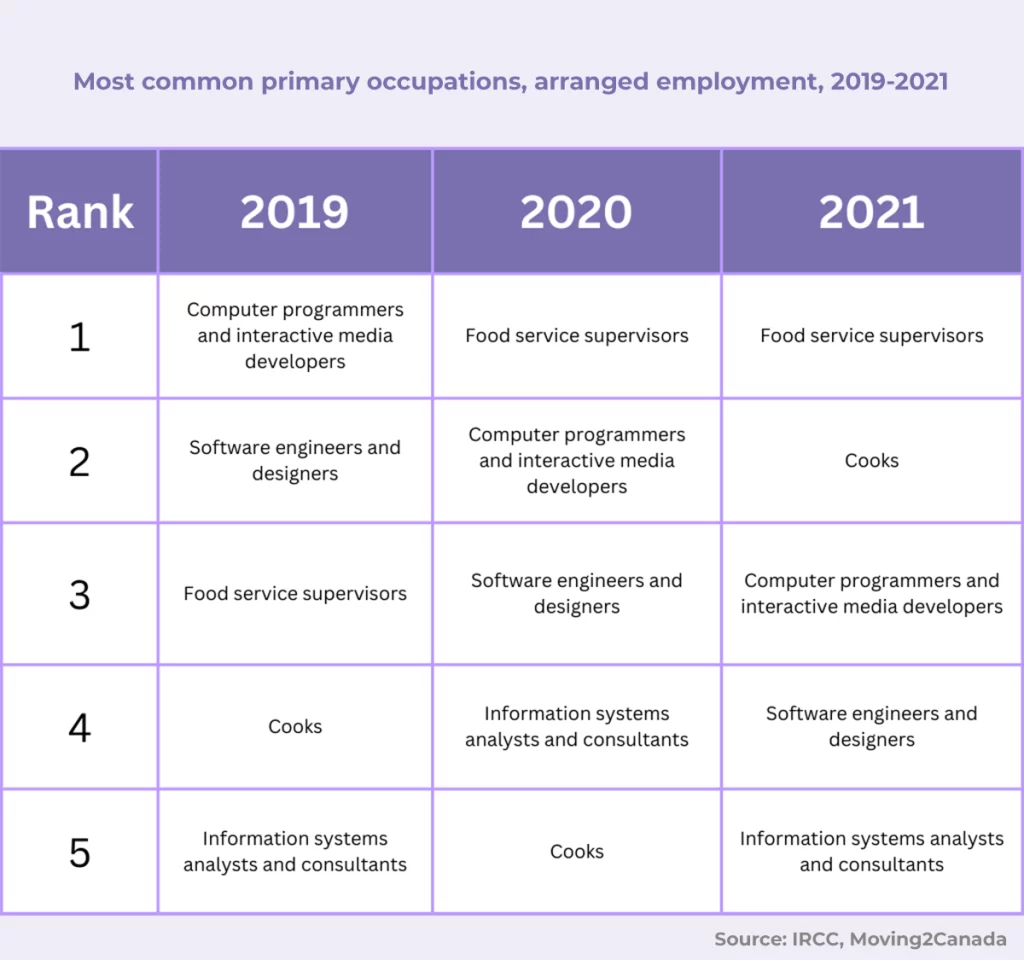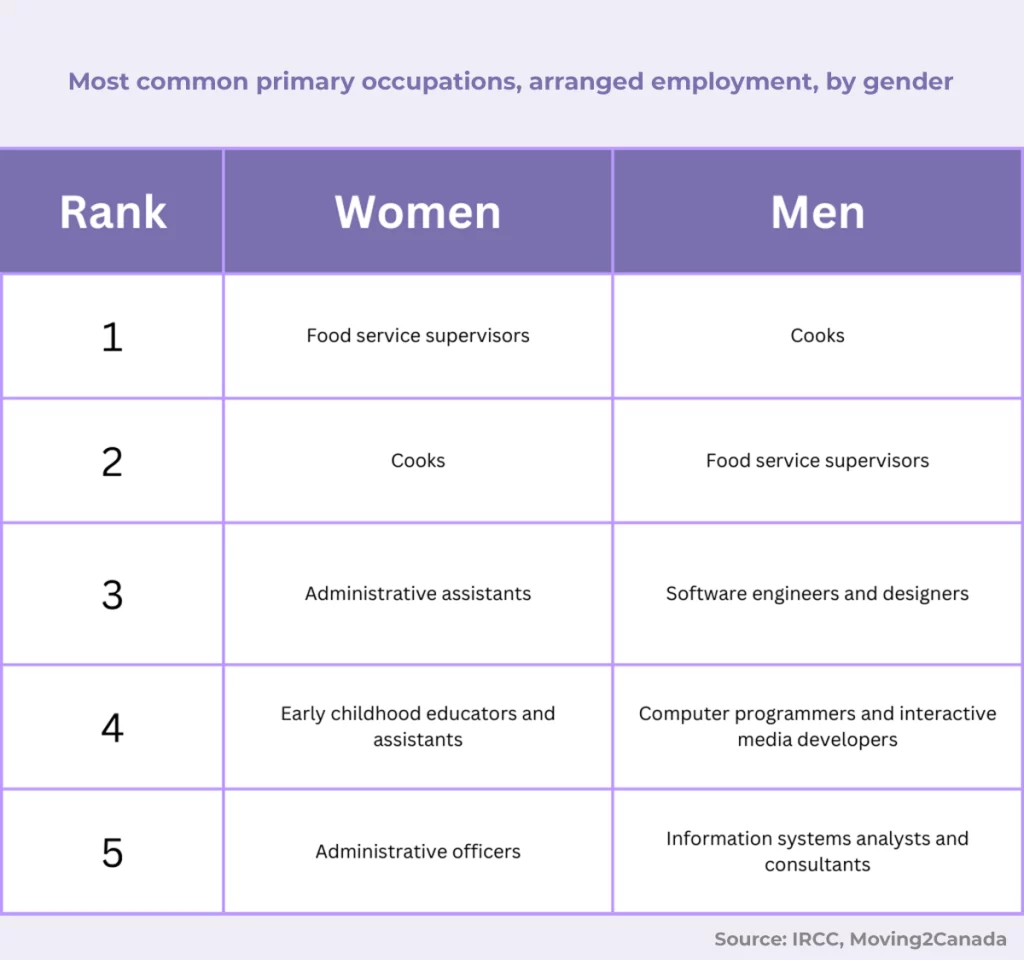Although it is not necessary to have a job offer in order to come to Canada, having Canadian experience—such as employment or academic experience—can provide access to a variety of economic-class immigration schemes.Common jobs for immigrants in Canada: When choosing a curriculum, it’s crucial to keep in mind that your line of work counts if you’re searching for a career in Canada that might advance you toward permanent status.
The National Occupation Classification (NOC) system is used by the Canadian government to categorize various professions. This past November, Immigration, Refugees, and Citizenship Canada (IRCC) upgraded its systems to the most recent version, NOC 2021.
Six Training, Education, Experience, and Responsibilities (TEER) categories comprise the current NOC. In order to be eligible for some of the most well-liked economic class immigration programs to Canada, one must be employed in a “skilled” employment that is classified as either category 0, 1, 2, or 3 of the TEER.
The vocations that the majority of immigrants wanted to work in last year are among the statistics provided by the IRCC’s newly published 2022 immigration data.
The 2021 Express Entry Report was also just published by the IRCC. One of the primary routes for immigration to Canada is via Express Entry.
We identified some of the most prevalent jobs of recent immigrants and those who were asked to apply for immigration via Express Entry using data from two official IRCC sources.
most well-liked job
These five professions accounted for the majority of newly arrived immigrants in Canada in 2022:
- Supervisors of food service
- engineers for software
- assistants in administration
- Programmers for computers and creators of interactive media
- Consultants and analysts for information systems
- Even when pandemic-related variables are taken into account, the findings seem to be roughly similar with Express Entry applicants.
The Express Entry annual report for 2021 provides specifics about the traits that selected applicants had in common, including the most popular main jobs.
An exceptional year for Express Entry was 2021. Only those who qualified for the Canadian Experience Class (CEC) or who obtained a nomination from a Provincial Nominee Program (PNP) were asked to apply.
- How to find jobs in Toronto
- Looking for Work in Canada
- Jobs for Teachers in Canada
- Laborer/Unloader of Containers
- Jobs in hospitality in Western Canada
Due to travel limitations, the IRCC concentrated invitation rounds on these programs as their applicants were more likely to already be in Canada than those in other programs.
The group that was invited in 2021 was thus different from any prior year.
More persons than in previous years were asked to apply for positions in the technical and skilled professions because Canada only conducted lotteries for the CEC and PNP in 2021. For instance, invited applicants tended to hold professional positions in 2019 and 2020, which typically need a college degree.
The five most popular main vocations among Express Entry applicants invited to apply between 2019 and 2021 are shown in the following table.

Express Entry: Gender-specific Popular Jobs
Gender-specific data are significant because they provide insight into the nuanced reality of gender in the workplace.
The most prevalent profession recorded by both men and women at the time of acquiring an ITA was food service supervisor. Beyond that, there were some differences between the top jobs held by men and women.
The top four professions for women that do not rank in the top 15 for males are as follows:
- Professional jobs in public relations,
- marketing, and advertising;
- bookkeepers and accounting technicians;
- early childhood educators and aides;
- and financial sales agents.
Four of the top jobs for males that are not in the top 15 for women are as follows:
- jobs in supply chain management,
- monitoring,
- and scheduling coordination; supervisors;
Managers of information systems and computers;- Machinists and Inspectors of Machine Tooling;
Supervisors of other services.

Including bonus points for prearranged work
Based on scheduled employment,
certain Express Entry applicants may be qualified to receive extra Comprehensive Ranking System (CRS) points.
Only the professions of people who received these bonus points for having a legitimate employment offer are shown in the following table.
The majority of these positions are in fields that were originally referred to as “skill type B,” but are now classified as TEER 2 or 3, much like Express Entry applicants in general.

employment points sorted by gender
In general, males received points for organized work more often in the Express Entry pool. Men made over two thirds of the applicants who obtained ITAs along with qualifying employment offers.
Compared to their male colleagues, invited women with scheduled employment points were more likely to work in “skill type B occupations,” as these jobs were referred to in 2021. Supervisors of food service, chefs, administrative assistants, early childhood educators, and administrative officers are a few examples of these.
In 2021, males were more likely to work in skill type B professions that required organized employment, while skill type A jobs—which are now equivalent to TEER 1—were more prevalent among top occupations. Software engineers, computer programmers, interactive media developers, information systems analysts, and consultants are examples of these kinds of employment.

That being said,
We don’t want you to depart with the impression that only those with supposedly “skilled” occupations are granted permanent residency.
To be eligible for the Express Entry pool, you do need to have a certain level of “skilled work experience,” but there are plenty of other choices available to you.
The foundation of Canadian economic immigration policies is the belief that there exists a need for workers worldwide and that there are individuals available who are willing and able to meet that need.
- Nursing Jobs in Canada
- Hospitality Jobs in Canada
- Construction jobs in Canada
- How to find jobs in Toronto
Of course, having a job does not affect your eligibility for family sponsorship or refugee immigration (but let’s not ignore the Economic Mobility Pathway Pilot for refugees).
If you’re considering coming to Canada via economic immigration, you could also be qualified for programs designed specifically for particular kinds of employees.
For further immigration alternatives, consider the following programs:
- Program for Provincial Nominees (PNP)
- Program for Atlantic Immigration (AIP)
- Northern and Rural Immigration Pilot Program (RNIP)
- Pilot Program for Agri-Food Immigration: Caregivers
- Take the free Canada Immigration Quiz offered by Moving2Canada to see whether you qualify for any of the more than 20 different immigration programs to Canada if you’re interested in relocating there but are unsure which program to apply for.
Would you want to get updates on Canadian immigration news first? Obtain a free Moving2Canada account and subscribe to our newsletter!